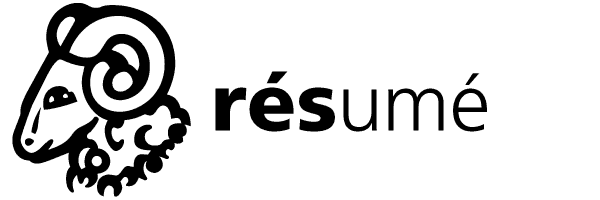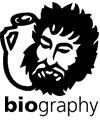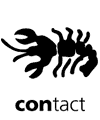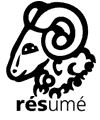I direct the Stanford Calming Technology Lab as a post-doc in Media-X.
I
defended my
Ph.D. dissertation, "Augmented Self-Regulation", in the interdisciplinary Learning
Sciences and
Technology Design program at Stanford
University. My committee consisted of:
Roy Pea (Ed), Jeff Heer (CS),
Jelena Obradovic (Ed), BJ Fogg (PTL),
and Sep Kamvar (MIT Media Lab).
I am also active in Stanford's Human-Computer Interaction research group and the Persuasive Technology Lab.
My research interests focus on the design, evaluation, and theory of calming
technologies, sociotechnical tools and systems whose aim is to induce and increase psychophysiological states of calm either
physical, affective, or cognitive.
I teach, advise, and consult on design, experience, health, and calm at the the d.school, other universities, and at corporate workshops, conferences, and retreats.
Prior: Research intern at Google HQ working with Dan Russell on search expertise and influencing
behavior.
Prior: Research intern at Microsoft Research Redmond's VIBE group working with Merrie
Morris, Dan Morris, and Mary
Czerwinski on ClassSearch, a search instruction environment.
Prior: Inventor and lead researcher of Microsoft Mouse Mischief.
Prior: Associate Researcher, Asia Center for Interaction Design, Microsoft Research
Asia, Beijing, China.
Prior: Masters in Human-Computer Interaction, Carnegie Mellon University School of Computer Science.
Prior: Bachelors in Computer Science at the Human-Computer Interaction Laboratory, University of Maryland at
College
Park.
Publications
Full Papers
- Moraveji, N., Russell, D., Bien, J., Mease, D. (2011). Measuring Improvement in User Search Performance
Resulting From Optimal Search Tips. ACM SIG-IR. Beijing, China.
- Moraveji, N., Morris, M., Morris, D., Czerwinski, M., Riche, N. (2011).
ClassSearch: Facilitating the Development of Web Search Skills through Social Learning. ACM CHI, Vancouver, Canada.
(acceptance rate 26%) - Best Paper Honorable Mention
- Moraveji, N., Ahmad, S., Kita, C., Chen, F., Kamvar, S. (2011).
Weblines: Enabling the Social Transfer of Web Search Expertise using User-Generated Short-form Timelines. ACM CSCL, Hong Kong, China.
(acceptance rate ?%)
- Amershi, S., Moraveji, N., Morris, M., Balakrishnan, R. (2010).
Multiple
Mouse
Text Entry for Single-Display Groupware. ACM CSCW,
Savannah, GA. (acceptance rate 20.3%) - Best Paper Nominee
- Moraveji, N., Inkpen, K., Cutrell, E., Balakrishnan, R. (2009).
A Mischief of Mice:
Examining Children's Performance in Single
Display Groupware Systems with 1 to 32 Mice. ACM CHI,
Boston, MA. (acceptance rate 24.5%)
- Moraveji, N., Kim, T., Pawar, U., Ge, J., Inkpen, K. (2008).
Mischief:
Supporting Remote Teaching in Developing Regions. ACM CHI,
Florence, Italy. (acceptance rate 22%)
- Li, J., Ding, J., Moraveji, N., O'Keeley, P., Woolf, S. (2007).
Designing Games to Address 'Mute English' Among Children in China. HCI
International, Beijing, China.
- Christel, M., Moraveji, N., Huang, C., Papernick, N. (2004). Exploiting Multiple Modalities for Interactive Video. ACM International Conference on
Acoustics, Speech, and Signal Processing. ICASSP, Montreal,
Quebec, Canada. (acceptance rate 50%)
- Siewiorek, D., Smailagic, A., Furukawa, J., Moraveji, N., Reiger, K.,
Shaffer, J. (2003). SenSay: A
Context-Aware Mobile Phone, IEEE International
Symposium on Wearable Computers. ACM ISWC, New York, NY.
Short Papers
- Moraveji, N., Olson, B., Nguyen, T., Saadat, M., Khaligi, Y., Pea, R., Heer, J.
(2011). Peripheral Paced Respiration:
Influencing User
Physiology During Information Work.
ACM UIST. Santa Barbara, CA.
- Moraveji, N., Lindgren, R., Pea, R. (2009). Organized
Mischief: Comparing Shared and Private Displays on a Collaborative
Learning Task. Extended abstracts of the 8th International
Conference on Computer Supported Collaborative Learning. Rhodes,
Greece.
- Moraveji, N., Li, J., Ding, J., O'Keeley, P., Woolf, S. (2007).
Comicboards: Using Comics as
Proxies for Participatory Design with Children. ACM CHI, San Jose,
CA. (acceptance rate 22%)
- Li, N., Moraveji, N., Kimura, H., Ofek, E. (2006). Improving the
Experience of Controlling Avatars in Camera-Based Games Using Physical
Input. ACM MultiMedia, Santa Barbara, CA. (acceptance rate 35%)
- Jiang, H., Ofek, E., Moraveji, N. (2006). Direct pointer: A
camera-based remote interaction technique. ACM CHI, Montreal, Canada (acceptance rate 23%).
- Moraveji, N., Ho, R., Huynh, D., Zhang, L. (2005). An exploration in
interface design for the Chinese migrant worker population. ACM DUX, San Francisco, CA.
- Moraveji, N. (2004). Improving
Video Browsing with an Eye-Tracking
Evaluation of Feature-Based Color Bars. ACM/IEEE JCDL, Tuscon,
AZ.
Journals
-
Yaw Anokwa, Thomas Smythe, Divya Ramachandran, Jahanzeb Sherwani, Yael Schwartzman, Rowena Luk,
Melissa Ho, Neema Moraveji, Brian DeRenzi, Stories from the Field: Reflections on HCI4D
Experiences, Journal of Information Technologies & International Development, Special Issue on
Human
Computer Interaction and Development, December 2009.
Doctoral Consortium
- Moraveji, N. (2010). User Interface Designs to Support the Social Transfer of Web Search Expertise. ACM SIG IR 2010, Geneva,
Switzerland. (slides)
Symposiums
-
Rose, C., Kam, M., Laferriere, T., Law, N., Moraveji, N., Vatrapu, R. (2010) Supporting and Measuring
Global Information Literacy Through Cross-cultural Studies of Web Search
. Part of Symposium: Supporting and Measuring Global Information Literacy Through Cross-cultural
Studies of Web Search.
International Conference on the Learning Sciences. Chicago, IL.
(acceptance rate 55%)
Posters, Demonstrations, & Experience Reports
- Wongsuphasawat, K., Gamburg, A., Moraveji, N. (2012). You Can't Force Calm: Designing and Evaluating Respiratory Regulating Interfaces for Calming Technology. Extended abstracts of ACM UIST, Cambridge, MA, USA.
- Moraveji, N., Hagiwara, T. (2012). BreathTray: Augmenting Respiration Self-Regulation without Cognitive Deficit. Extended abstracts of ACM CHI 2012. Austin, TX. (acceptance rate 48%)
- Moraveji, N. Soesanto, C. (2012). Towards Stress-less User Interfaces: 10 Heuristics Based on the Psychophysiology of Stress. Extended abstracts of ACM CHI 2012. Austin, TX. (acceptance rate 48%)
- Moraveji, N., Pea, R. (2011). Social Augmentation of Self-Regulation: Influencing User
Physiology During Information Work. LIFE Site Visit 2011. Seattle, WA.
- Moraveji, N., Akasaka, R., Pea, R., Fogg, R. (2011). The Role of Commitment Devices and Self-shaping in Persuasive Technology.
ACM CHI, Vancouver, Canada.
- Moraveji, N., Pea, R. (2011). Enabling Instructor-Designed Multiuser Interactive Activities: System Design and Evaluation from 18 Schools. ACM
CSCL, Hong Kong, China.
- Moraveji, N. (2009). NSF LIFE Center student conference.
The effect of shared displays on conceptual learning in large groups. (Unpublished)
- Moraveji, N., Smith, M., Lee, M. (2008). Interaction
Methods for Large-Group Coordination in Single-Display Groupware. ACM
UIST, Monterey, CA. (acceptance rate 50%)
- Rajan, A.R.D., Like, L., Moraveji, N. (2007). Mandala: Supporting
Social Presence and Interaction in the Chinese Home. ACM CHI,
San Jose, CA.
- Christel, M., Moraveji, N. (2004). Finding the Right
Shots:
Assessing Usability and Performance of a Digital Video Library
Interface.
ACM Multimedia, New York, NY.
- Moraveji, N., Thornton, C., Barry, P., Shuie, K. (2004). Apeer: A
Peripheral Interface to Improve Social Awareness of Brief Topical
Discussion. ACM CHI, Vienna, Austria.
- Moraveji, N., Travis, A., Bidinost, M., Halpern, M. (2003).
Designing
an Integrated Review Sheet for an Electronic Textbook. ACM CHI,
Ft Lauderdale, FL.
Workshop Papers
- Moraveji, N., Habif, S., Oppezzo, M., Pea, R. (2011). A Theoretical Model of Calming Technology:
Designing to Mitigate Stress and Increase Calm. Workshop of Interactive Systems in Healthcare. In the Fall symposium of the American Medical Informatics Association (AMIA). Washington, DC.
- Moraveji, N., Oshidary, N., Pea, R., Fogg, BJ (2011).
Calming Technologies.
Workshop on Personal Informatics, ACM CHI 2011, Vancouver, Canada.
- Moraveji, N., Morris, M., Morris, D (2010).
Supporting the Social Transfer of
Web Search Expertise.
Next Generation of HCI and Education -
ACM CHI 2010, Atlanta, GA. (acceptance rate 40%)
- Moraveji, N., Fitter, N. (2009). Sustainable Research
Agendas. HCI for Community and International Development -
ACM CHI 2009, Boston, MA.
- Moraveji, N. (2008). Experiences
Designing an Extensible
Platform for Classroom Interaction Modeled on Local Culture. HCI for
Community and International Development -
CHI 2008, Florence, Italy.
Unrefereed Publications
- Moraveji, N., Otu, I., Harmon, J., Campbell, F., Fitter, N. (2009). Enabling and
Understanding Instructor-Designed Multiuser Activities.
- Moraveji, N., Liu, Z. (2008). UIGarden.net: A
Cross-Cultural Review. interactions magazine. ACM.
- Fortes, F., Lv, H., Moraveji, N. (2007). Taxonomies for News
Aggregator Interfaces and User Patterns MSR Technical Report,
Redmond,
WA.
- Moraveji, N., Thambiratnam, K., Jun, L. (2006). DynaLine: A
Non-Disruptive TV User Interface for Passive Browsing of Internet
Video. MSR Technical Report, Beijing, China.
- Moraveji, N., Ho, R., Huynh, D., Zhang, L. (2005). Communication Gap: Designing an Interface for Chinese Migrant Workers. Usability Professionals'
Association, User Experience Magazine, Volume 5, Issue 2, USA.
- Moraveji, N., Yu, P., Huang, X. (2006). Recording
in Thoughts: Recording Speech for the Purpose of Sharing.
MSR Technical Report, Beijing, China.
Committees
Reviewing
- Reviewer, ACM UIST 2011.
- Reviewer, ACM CHI 2009-2012.
- Reviewer, ACM CSCL 2010-2012.
- Reviewer, ACM DIS 2012.
- Reviewer, ACM CSCW 2010-2011.
- Reviewer, ACM TEI 2007.
Talks
- Sept 28, 2012. Beyond Engagement and Into the Present. Researcher's Night at the University of Trento, Italy.
- May 24, 2012. Research Opportunities in Calming Technologies. At Konica Minolta Headquarters, Hachioji, Tokyo, Japan.
- May 17-18, 2012. Baby Steps to Calm with Technology. Mobile Health 2012.
- May 10, 2012. Augmented Self-Regulation & Calming Technology. G-cafe: Computer Graphics Cafe. Computer Science, Stanford University.
- May 5, 2012. Calming Technology & Peace. CHI 2012 Workshop on Peace. Austin, TX.
- May 3, 2012. Ambulatory Respiratory Monitoring and Influence. Quantified Self Health Silicon Valley meet-up. Stanford Univesity Graduate School of Business.
- April 9, 2012. Breathwear. Quantified Self Technology Faire. The Hub, San Francisco, CA.
- April 9, 2012. Augmented Self-Regulation and Calming Technology. Symbolic Systems Forum, Stanford University.
- February 28, 2012. Augmented Self-Regulation. Dissertation defense, Stanford University.
- August 11, 2011. Perfect Self-Awareness. Quantified Self Meetup, Stanford University.
- July 27, 2011, Calming Technology. UC Berkeley. Berekely Institute of Design.
- Feb 16, 2011, Stanford HCI Lunch meeting, Calming Technology.
- Feb 7, 2011, Stanford cs247: Interaction Design Studio,
Behavior Design.
- July, 2010, ACM SIG-IR 2010 Doctoral Cosortium, Social Transfer of
Search Expertise. [pdf]
- June 30, 2010, ICLS 2010. Supporting and Measuring Global
Information Literacy Through Cross-cultural Studies of Web Search. Chicago, IL. [ppt]
- June 9, 2010, Innovation Journalism Conference.
Invited speakers. Hyperlink Storytelling: How to generate compelling and
accurate timelines for news stories. [gdoc]
- June 9, 2010, Stanford HCI Group research seminar, Coming
soon..., [pdf]
- April 2010, ACM CHI Workshop
on UI Technologies and Education Pedagogy. The Social
Transfer
of Search Expertise.
[ppt]
- March 12, 2010, Mozilla
Jetpack for Learning competition winner - talk at South by Southwest. LineHive:
Hyperlink
Storytelling. [ppt]
- March 2010, Stanford LSTD Seminar, Social Transfer of Search Expertise. [ppt]
- Februrary 2010, University of Maryland Human-Computer Interaction Lab, Social Transfer of Search
Expertise. [ppt]
- Feb 2010 Winter, Stanford University, "HCI Studio: Designing Toys for Learning", guest lecturer
with Dr. Hayes Raffle, Terry Winograd, & Bill Verplank.
- Feb 2009, Stanford University HCI Design Studio - guest lecturer for Terry Winograd, Playful
collaboration in large groups. [pdf]
- Jan 2009, SRI International - Center for Connected Learning, A mischief of mice: Supporting large
groups using large displays and shared access. [pdf]
- 2009, ACM CHI. A mischief of mice: Supporting single-display groupware with 1-32 mice.
[pdf]
- 2009, ACM CHI Workshop on human-centered
computing in international development. Sustainable Research Agendas. [pdf]
- 2008, ACM CHI. Mischief: Supporting Remote Teaching in Developing Regions. [pdf]
- 2008, University of Washington Computer Science Department class on technologies for developing
regions, A Mouse on Each Desk. [pdf]
- 2008, Berkeley Insititue of Design, Technologies and Infrastructure for Emerging Regions,
Mightymice and Comicboarding.
[pdf]
- 2007, ACM CHI. Comicboarding: Using Comics as Proxies for Participatory Design. [pdf]
- 2007, Microsoft Research TechFest. PointSource: A microwork marketplace.
- 2007, The Hutong School, Beijing, China. Design Research from the Field. [pdf]
- 2006, Microsoft Research TechFest. Recording-in-thoughts: Remixing social media on the go.
- 2006, ACM DIS.
Teaching
- 2012 Fall, University of Trento Computer Science, "Designing Calm", Trento, Italy.
- 2012 Spring, ed328x/cs377d, Stanford University d.school, "d.compress: Designing Calm". Teaching with Steph Habif, Roy Pea, and Gus Tai.
- 2011 Spring, cs377c, Stanford University, "Behavior Design: Using technology to create calming habits", teaching with PTL director BJ Fogg.
- 2011 Winter, ed396, Stanford University, "The Design of Technologies for Casual Learning", co-teaching with Dr. Shelley Goldman.
- 2010 Spring, ed298/cs377v, Stanford University, "Learning in a Networked World", teaching
assistant with Dr. Roy Pea.
- 2010 Winter, ed396/cs377l, Stanford University, "The Design of Technologies for Casual Learning",
co-creator and co-teacher with Dr. Shelley Goldman.
- 2010 and 2009 Winter, Stanford University, "Tools for Designing a Fulfilling Career", co-creator and
co-teacher with Tim Reilly.
- 2009 Spring, comm268, Stanford University - Dr. Cliff Nass's course on experimental user
interfaces.
Group TA.
- 2009 Winter, comm268, Stanford University - Cliff Nass's course on designing user interfaces.
Group TA.
- 2009 Fall, Stanford University, "Introduction to HCI", content creator (with Mike Krieger) &
teaching assistant for Dr. Scott Klemmer.
- 2003 Summer, Carnegie Mellon University, "Human-Computer Interaction". SAMS program for minority
high school students.
Awards:
- 2012-2013: H-STAR/Media-X research grant for study of "Calming Technology"
for transformative research on productivity and knowledge management.
- 2011: H-STAR/Media-X research grant for study of "Calming Technology"
for transformative research on productivity and knowledge management.
- 2008-2009: I. James and Viola Lewis Quillen Fellowship, Stanford
University
- 2004: ACM SIG-CHI Student Design Competition team winner, first prize
- 2003-2004 University of Maryland Department of Computer Science
Dean.s List 1999, 2001 (4.0 GPA), 2002.
- 2002 International Associate
for the Exchange of Students in Technical Education (IAESTE) US
awardee (78 selected from 800 semi-finalists).
- 2001 University of Maryland Department of Computer Science Academic
Scholarship.
- 2000 University of Maryland Ellen Brandt Memorial Scholarship
Winner.
Patents
- 20080261191 Scaffolding support for learning application programs in a computerized learning environment (10-23-2008)
- 20080254432 Evaluating learning progress and making recommendations in a computerized learning environment (10-16-2008)
- 20080254431 Learner profile for learning application programs (10-16-2008)
- 20080254430 Parent guide to learning progress for use in a computerized learning environment (10-16-2008)
- Pending for "Multiple Mouse Character Entry", 2009.
- Pending for "DynaLine, an interface for navigating internet video on the television", 2006.
- Pending for "Recording in Thoughts," a user interface for recording audio using Undo", 2005.
|
|





